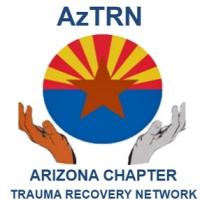Arizona Trauma Recovery Network

Trauma Recovery Network (TRN), which emerged at the time of the 1995 Oklahoma City Federal Building bombing, is a nationwide organization of eye movement desensitization and reprocessing (EMDR) clinicians who are ready to respond to disaster and have committed to volunteering their time, in the event of a violent trauma, to assist survivors as part of the early recovery process. Early EMDR Interventions (EEIs) allow people to process a traumatic event immediately following the incident, and this rapid processing has been shown to diminish the physical, emotional, and mental distress associated with trauma.
EMDR is a form of therapy that allows people to reprocess traumatic memories and experiences until they become clear and more able to be processed and coped with. Symptoms of stress following a disaster might include low energy, numbness, unexplained pain, hopelessness, substance abuse, irritability, and suicidal thoughts. Treating this distress can reduce or prevent these symptoms, but when the memories causing the distress are fragmented or incoherent, treatment may be difficult. In EMDR, bilateral stimulation—which consists of eye movements, tones, and taps—helps the person in treatment process the event without having to discuss its occurrence. Studies show that EMDR has a significant benefit to those who exhibit symptoms of distress following a trauma: After six sessions, posttraumatic stress was eliminated in all participants who had experienced one trauma and in 77% of participants who had experienced more than one trauma.
The Arizona chapter of the mission aims to develop and maintain a network of licensed clinicians who provide early EMDR interventions as part of a frontline trauma response and recovery team throughout the state of Arizona. In a community crisis such as a fire, violent event, or manmade or natural disaster, AzTRN networks with community organizations, creates response plans, activates a trained network of EMDR therapists, and provides pro bono sessions for assessment and EMDR treatment.
AzTRN also works to train clinicians in emergency response procedures and interventions and educate the disaster response community about the various benefits of Early EMDR Interventions. After a disaster or trauma, some people may be able to recover quickly, due to natural resiliency, while debriefing and talk therapies may help others cope with PTSD. Some, though, may need a different form of intervention to process the fragments of memory and experience, and EMDR can help people rapidly process and work through shock, grief, and anger. AzTRN is committed to the prevention of PTSD and is ready to offer their services following any Arizona emergency situation or disaster.
